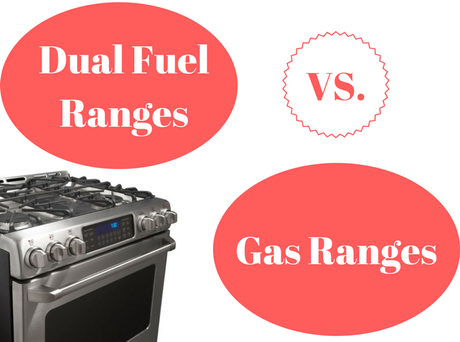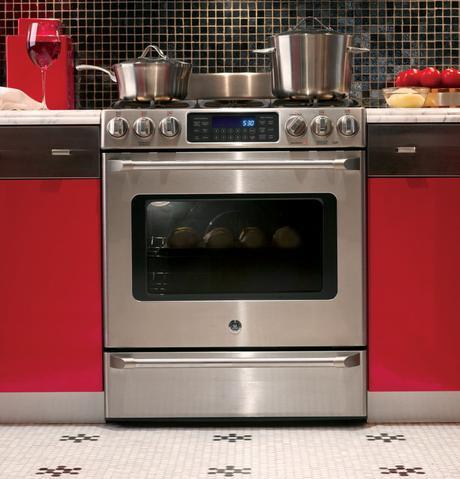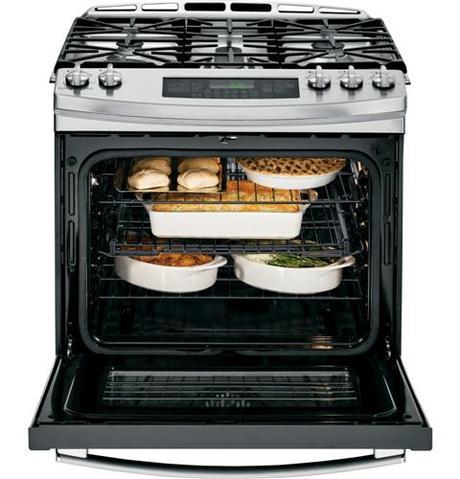 Selecting the fuel type of your new range can be confusing. However, it doesn't have to be. Here is a quick rundown to make the choice simple.
Selecting the fuel type of your new range can be confusing. However, it doesn't have to be. Here is a quick rundown to make the choice simple.
Dual Fuel Ranges

There are a number of solid pros to a dual fuel range. Some of these include cost-effectiveness, functionality, and cooking quality.
With a dual fuel range, you get the best of both worlds. You have the even heat of an electric oven and the efficiency and control of a gas cooktop.
Gas cooktops are more efficient than electric burners, because of the immediate heat from the gas. Electric burners have a long ramp up before they reach the appropriate temperature.
Also, gas burners are more precise when it comes to temperature control because when adjusted the heat moves from temp to temp immediately.
An electric cooktop simply cannot provide these benefits.
The electric oven is a great feature to have because of the cost-effectiveness and the quality of the cooking.
When electric ovens are heated to a certain temperature, they stay at that temp until changed.
This saves you money because the oven does not have to adjust itself to keep the temperature consistent like gas ovens do.
Also, the heat in electric ovens distributes evenly throughout the entire cooking cavity.
This provides even cooking throughout the oven and removes the likelihood of hot spots or uneven cooking.
Cons:One of the only downsides of a dual fuel range is the cost.
While you may save money in the long run, it is going to cost you more up front.
Dual fuel ranges cost anywhere between $1000 and $2000 dollars more than a gas range depending on the brand and other features.
Gas Ranges

The gas cooktop is a positive feature. As mentioned earlier, gas cooktops offer a more precise control than electric cooktops.
Since the oven fuel is gas, the oven will heat up quicker than an electric oven similar to the way a gas cooktop heats up faster than an electric cooktop.
Keeping food moist is also a fantastic feature of a gas range since the temperature rapidly decreases once the oven is turned off.
An electric oven may be better for baking, a gas oven is better for roasting.
Gas ovens typically have a longer lifespan than electric ovens. The coils in an electric oven wear out over time, but a gas oven is basically a lifetime investment.
Gas ovens are also considered more dependable. In the event of a power outage, you will not only have use of your stove but your oven as well.
Cons:One of the main negatives about a gas oven is the cost-effectiveness. When an electric oven heats it may take longer to get hot, but it maintains the desired temperature.
When a gas range oven heats up, it takes less time to heat the oven, but in order for the temperature to stay accurate, the gas must turn on and off.
The constant off and on costs money, making it less cost-effective than an electric oven.
Another con of a gas range is that a majority of the heat remains at the top of the oven, making it a poor option for baking.
While both fuel types have pros and cons, the choice depends on your cooking needs. The best thing to do is to know exactly what you want. Then the choice between dual fuel ranges and gas ranges is quite simple.

